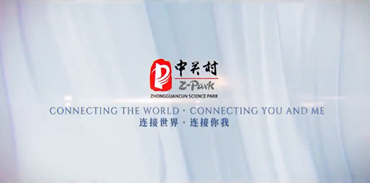A new powerhouse to be reckoned with
 |
|
A woman passes an information board at the biopharmaceutical innovation center of Zhangjiang Science City. [Photo by Gao Erqiang/China Daily] |
This factor has been important for social media and gaming guru Tencent, which has been shifting its focus toward providing industrial-oriented solutions, as its consumer-end business faces increasing regulatory pressure and a saturated internet penetration rate.
In 2016, Tencent set up YouTu Lab, its in-house AI arm, in Shanghai, in the hope of devising more tangible solutions for a variety of real-life scenarios.
"While pure-play internet companies can benefit from AI adoption across a number of customer-facing scenarios, AI can also be better employed to facilitate business-to-business sectors in Shanghai and the neighboring Yangtze River Delta region, which is home to numerous small and medium-sized high-tech enterprises," said Li Zhu, founding partner of venture capital firm Innoangel.
SenseTime, a Chinese tech unicorn, has taken the same approach. The company recently made its foray into the public transportation sector by teaming up with E-Drive, a Shanghai bus operator that uses new energy vehicles. As part of the partnership, E-Drive's buses will be equipped with SenseTime devices that detect drivers' fatigue levels through facial scanning technologies.
This bus project is part of a broader collaboration between SenseTime and SAIC, E-Drive's parent company, to construct an intelligent municipal transport system. SAIC, the operator of the city's largest car manufacturing base, has a campus that is equipped with tracks for self-driving automakers to run tests.
But it is not merely the tech enterprises that are contributing to Shanghai's reputation and development as a tech powerhouse.
Huang Jia, partner and general manager of global consultancy PwC in Shanghai, noted that companies from industries that the city is renowned for, such as high-end manufacturing, have also been lending a helping hand as they upgrade their infrastructure and systems to stay relevant in the digital age.
For instance, Shanghai Zhenhua Heavy Industry Co Ltd, the world's largest port machinery manufacturer, kicked off production of a fully-automated container terminal last year.
According to company chairman Song Hailiang, the terminal features the use of the internet of things and machine learning, both of which help to improve the efficiency of operations and lower the site's downtime and costs.
 |
|
The booth of YouTu Lab, the in-house AI arm of Tencent, at an exhibition. [Photo provided to China Daily] |
A magnet for big names
Microsoft is among the global tech powerhouses riding the waves generated by Shanghai's ambitions, bringing to the city some of its most advanced research facilities.
The company's latest move includes the opening of an AI and IoT lab in May 2019, the largest of its kind in the world. According to Microsoft, the facility will help about 300 local clients turn their prototypes into products each year.
Such developments are heartening news for the city, said Yuan Tao, chairman of Shanghai Zhangjiang Group, the operator of the Zhangjiang Science City.
Yuan currently oversees the 66,000-square-meter AIsland, which hosts a slew of AI-related research labs. The first batch of 20 companies includes global organizations and local startup firms such as Microsoft, Alibaba, CloudWalk Technology and a research facility affiliated to Tongji University.
"The profile of these companies, together with the cluster of companies from the upstream and downstream sectors will help AIsland lead the national AI pack and secure Shanghai's position as a budding center for tech innovation," said Yuan.
He added that AIsland, which also acts as an incubator for AI companies, will also pave the way for the development of a wellspring of Shanghai tech firms known for their business model innovation.
Of the most prominent examples is social e-commerce startup Pinduoduo, which took just three years to reach a gross merchandise volume of 100 billion units. In comparison, Alibaba and JD took five and 10 years respectively to reach the same milestone. Pinduoduo's social media-anchored model helps people in rural areas sell local specialties, which has in turn alleviated poverty levels.

